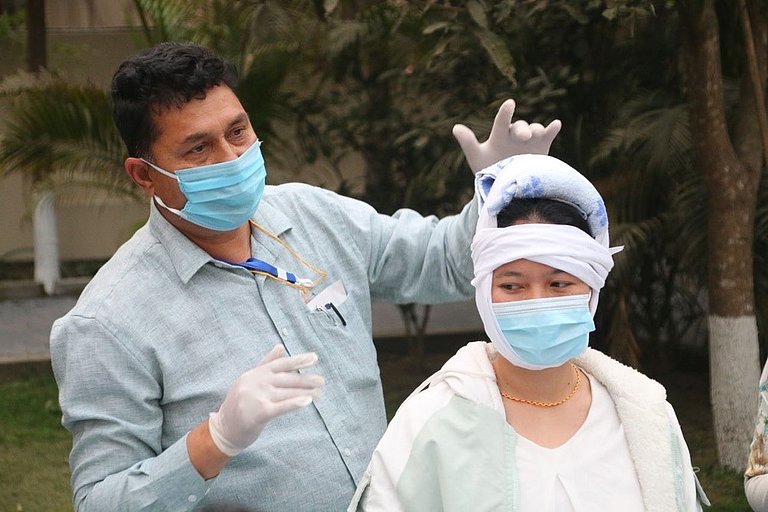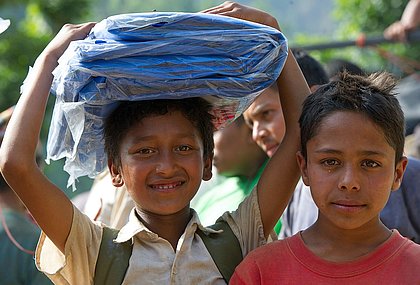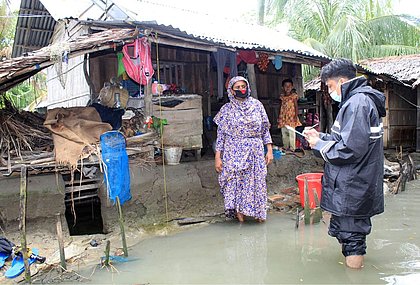South Asia is exposed to a variety of hazards due to its geo-climatic conditions. These range from landslides and earthquakes to glacial lake eruptions in the Himalayas in the north, to droughts and floods in the lowlands, to cyclones arising in the Bay of Bengal and the Arabian Sea. Nepal in particular, as a country with diverse geography, complex geology and highly variable climate, is exposed to many natural as well as man-made threats. In a global comparison, Nepal is among the top 20 of all multi-hazard countries in the world (Source: DRR Status Report 2019). With a population of more than 29 million people, much of whom depend on agriculture for their livelihoods, more than 80 % are at risk of natural hazards. In particular, the impacts of climate change, such as the increasing intensity of rainfall, increase the likelihood of flooding, erosion and landslides - with massive implications for agriculture and food security. In addition to climate-related natural disasters, there is still the omnipresent danger of further earthquakes.
Disaster preparedness in rural areas
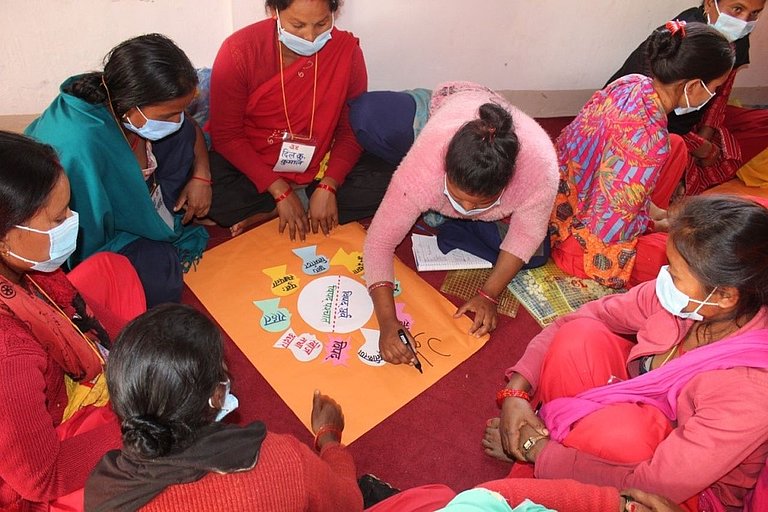
In our disaster risk reduction project in the rural community of Raptisonari in Banke, we work in cooperation with the Nepalese partner organization Bheri Environmental Excellence Group, or BEE Group for short. Raptisonari has been hit frequently and particularly hard by floods in the past. Every year during the monsoon season, numerous families lose their sources of income due to the floods. The project aims to strengthen the awareness and capacity of local institutions and communities on disaster preparedness and management by, for example, setting up early warning systems, formulating disaster action plans and establishing disaster management committees. Last year, the nine disaster management committees were significantly involved in preventing the spread of COVID-19 in the project region: Here, the committees provided a bridge between the community and the local government, assisted in quarantine management and implemented awareness campaigns. Similarly, the disaster management committees work to identify income-generating activities in the community.
In order to actively involve communities in disaster risk reduction management, an inclusive approach is always adopted in all project activities: In this context, the project establishes so-called Women Empowerment Centres (WEC) to strengthen the participation of women in their communities. They provide a safe platform for women to gather and discuss various important issues within the communities. Over the past year, the women's groups have received input support in the form of seeds for vegetable cultivation, additionally attended trainings on leadership skills and learned how to access agricultural insurance benefits. To continue to sensitise the communities on the issue of DRR, relevant radio campaigns are being broadcast as well as public street theatres are being organized.
Cross-border cooperation and knowledge exchange
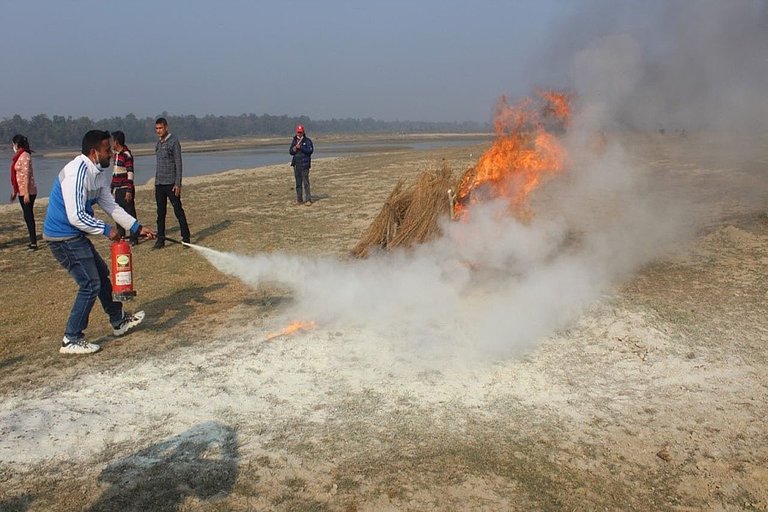
Given the project's regional focus, the aim also aims to strengthen the capacities and knowledge of the regional office and the partner organizations in Nepal, India and Bangladesh on disaster risk management. For example, in 2021, two multi-day training on Community-Based Disaster Risk Management, First Aid, Search and Rescue was held in Chitwan, Nepal. Here, the AWO International teams and our partner organizations had the opportunity to expand their knowledge and apply the newly learned methods in practical exercises: in firefighting exercises, rescue measures, or first aid trainings. Further, training in related topics is also on the agenda, for example, cluster coordination in emergencies, principles and minimum standards in humanitarian aid, various instruments for assessments, monitoring and evaluation. Our emergency projects should follow an inclusive approach in all phases: The AWO International team and partner organizations are enabled to analyse the target groups needs and to plan and implement projects accordingly. This also includes supporting local actors on the ground in developing emergency plans. Furthermore, the AWO International regional office will be equipped with emergency relief goods such as tents, kitchen equipment and hygiene kits so that the team can react quickly in the event of a disaster.
Projectinfo
| Project | Strengthening the capacities in disaster risk reduction at the community level, for the AWO team and the partner organizations |
|---|---|
| Place/Region | Nepal, Indien, Bangladesch |
| Partner | Bheri Environmental Excellence Group (BEE-Group) Nepal (BEE-Group-Component), the regional component is aimed at the partner organizations BEE-Group, NEEDS, HURF and WoSCC (Nepal), Gana Unnayan Kendra (Bangladesh), AFARM and Madhyam (India ) |
| Target group | More than 19,000 people, mainly women, farmers, socially excluded people (for the BEE-Group component) as well as the regional office and partner organizations for capacity building (RO / partner component) with 193 direct beneficiaries |
| Activities |
|
| Duration | September 1, 2019 to December 31, 2021 |
| Budget | 187,087 euros (BEE Group component) or 130,887 euros (regional office / partner component) |
| Sponsor | AWO International, Raptisonari Rural Municipality |
